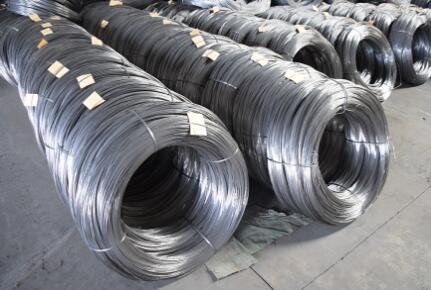Drywall Screws vs. Construction Screws Understanding the Key Differences
When it comes to home improvement or construction projects, choosing the right type of fastener is crucial for ensuring the integrity and longevity of your work. Two common types of screws used in building and remodeling are drywall screws and construction screws. While they may seem similar at first glance, understanding their distinct characteristics and best applications can help you make an informed decision for your next project.
What are Drywall Screws?
Drywall screws are specifically designed for fastening drywall sheets to wooden or metal studs. They typically feature a sharp point to facilitate easy penetration into the drywall and underlying material. The threads on drywall screws are often finer and spaced closer together than those on regular screws, allowing for a smooth and secure hold in drywall without tearing.
One of the standout features of drywall screws is their phosphate coating, which helps prevent rust and corrosion. This is essential, as drywall installations are frequently exposed to varying levels of humidity. Drywall screws typically have a bugle head, which allows them to sit flush with the drywall surface, preventing any protruding heads that could compromise the finish or be a safety hazard.
What are Construction Screws?
Construction screws, on the other hand, are a more versatile type of fastener used for a wide range of construction applications. These screws come in various lengths and diameters, making them adaptable to different materials, including wood, metal, and even masonry. Construction screws often feature a coarse thread, which provides better gripping power in thicker materials.
Unlike drywall screws, construction screws can have a variety of head styles, including flat, pan, or hex heads, allowing them to be used in applications that require added strength or a more secure connection. Furthermore, many construction screws are coated or treated to resist corrosion, making them suitable for outdoor and heavy-duty applications.
Key Differences
drywall vs construction screws

1. Material and Design Drywall screws are designed specifically for drywall installation, while construction screws are versatile and can be used in various materials. The thread design and head shape differ significantly, with drywall screws optimized for ease of use in drywall.
2. Strength and Load-Bearing Capacity Construction screws typically offer a stronger hold than drywall screws due to their coarse threads and larger diameter. This makes them ideal for load-bearing applications and situations where additional strength is necessary.
3. Application Usage Drywall screws should be used in drywall applications to ensure a secure and flush finish. In contrast, construction screws can be used in framing, decking, and other structural projects where a strong fastening is required.
4. Cost Generally, drywall screws are less expensive than construction screws due to their specific use and lower strength requirements. However, considering the project’s needs, investing in construction screws where necessary will save time and money in the long run due to their reliability.
Choosing the Right Screw for Your Project
When deciding between drywall screws and construction screws, it’s important to consider the specific requirements of your project. For hanging drywall or finishing walls, drywall screws are the optimal choice. They provide a clean finish and secure hold for lightweight sheets. If you’re working on structural elements, such as framing or heavy-duty assemblies, construction screws will offer the strength and durability required.
Conclusion
In summary, understanding the differences between drywall screws and construction screws is essential for the success of your construction or renovation projects. While drywall screws are tailored specifically for drywall applications, construction screws provide versatility across various materials and structures. By selecting the appropriate screw for your task, you can enhance both the quality and durability of your finished work. Always consider the demands of your specific project, and choose wisely to ensure the best results.

















